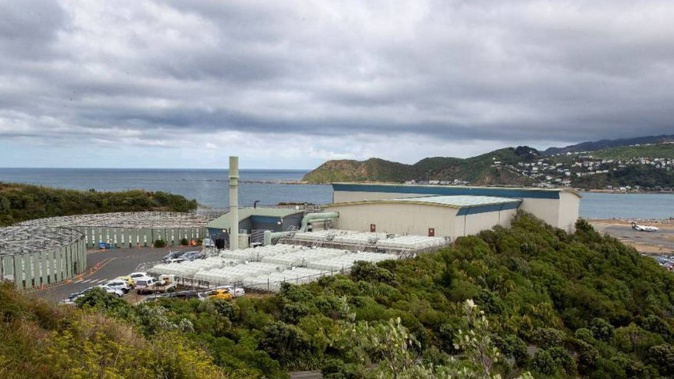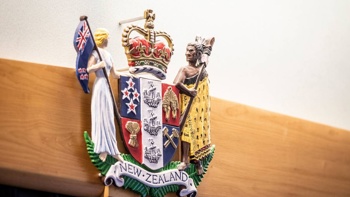
Sewage is spilling from the Wellington region’s ageing water pipe network hundreds of times every year, with Wellington city and Lower Hutt the worst offenders.
Information released to the Herald under the Official Information Act shows between 2018 and 2023 there were 7034 wastewater overflows in Wellington, Porirua, Lower Hutt and Upper Hutt.
Wellington recorded the most with 2500 sewage spills over that period, followed by Lower Hutt with 2242 and then Porirua with 1931.
Upper Hutt’s pipes were notably better at containing wastewater with 361 overflows recorded.
A wastewater overflow is when sewage flows out from the pipes or manholes that it’s usually contained within and into public or private property, waterways or the sea.
Wellington Water says on its website that it happens when there is a blockage somewhere in the network or if there is more water than the pipes can carry, for example after heavy rainfall.
On top of these spills, Wellington Water’s Moa Point Wastewater Treatment Plant has illegally discharged untreated sewage into the sea three times in the past two years - breaching consent.
Two of the discharges - on February 20 last year and April 19 this year - were partly due to mechanical faults at the plant.
In 2019, Wellington Water was fined $67,500 for illegally discharging sewage sludge from the Porirua Wastewater Treatment Plant.
The Herald asked Greater Wellington Regional Council whether it’s considering prosecution in relation to the Moa Point discharges but is yet to receive a reply.
Auckland University environmental engineering associate professor Lokesh Padhye said the situation was unacceptable for a capital city, but was New Zealand’s reality.
He said if you look at reports from the Ministry for the Environment and the Ministry of Health they are saying our water quality is bad.
“More than 4000 wastewater overflows happened across the country over the past 12 months – so it’s not uncommon, but it’s unfortunate.”
Padhye said he would categorise Wellington as having a high number of overflows, which he believes is down to infrastructure issues.
“It appears that what they are saying [in the OIA response] is they certainly don’t have the capacity with the current population, so they are in urgent need to upgrade their infrastructure.”
Padhye said the Moa Point consent breaches were particularly concerning, and Government water reforms - such as those formally known as Three Waters - were a step in the right direction.
“I do believe if these instances happened two times last year, [the fact] that it happened again this year is the worrying thing.
“We certainly need a holistic ‘Three-Water-management’ angle to upgrade all three stormwater, drinking water and wastewater networks.”
Wellington Water’s wastewater chief adviser Steve Hutchinson said parts of the pipe network were up to 120 years old, deteriorating in combination with blockages from wet wipes, fats and oils.
He said that, combined with wet weather, is what overloads their capacity and results in overflows.
‘We’ve got about 2500km of pipe and there’s about 420,000 people connected to that. It’s a fact of the environment we operate in, with old pipes, where we do get several blockages a day.”
But he said the organisation was committed to reducing the number of overflows and accepted Wellington Water would have one of the higher number of overflows nationally due to the age of the network.
Hutchinson said the Moa Point consent breaches were “not ideal” but work was under way to replace pumps and improve the reliability of the treatment plant.
He said the water provider was also mindful of climate change leading to more intense rainfall.
“That’s something we have to plan for – and the population is growing as well. With the mechanical work, that’s something we can get on top of.”
/cloudfront-ap-southeast-2.images.arcpublishing.com/nzme/6G3Z5E4EXEA4O52UDRWMY3NMW4.jpg)
Greater Wellington Regional Council chairman Daran Ponter. Photo / Mark Mitchell
The regulator for Wellington Water is Greater Wellington Regional Council.
Council chair Daran Ponter said the number of overflows did seem like a lot but was a sign of ageing infrastructure.
“There’s no getting away from that 7000 figure but many of those are small overflows around manhole covers, quite contained and generally more preferable that they occur in an environment where Wellington Water can manage those away from properties.”
In regards to Moa Point, Ponter said until there was a bigger plant better able to deal with the amount of sewage required to be processed, there would be discharges.
National’s environment spokesman Scott Simpson believed people would be surprised at the number of overflows in Wellington.
“Seven thousand is a huge number and unless the OIA had been asked I don’t think that number would’ve been released publicly.”
He said in its dealing with Moa Point, Wellington Water needed to take a much greater level of responsibility for its role in ensuring not only public health is protected but the environment.
In a statement, Environment Minister David Parker said everyone should be able to put their heads underwater in local rivers, lakes and harbours without getting crook, yet some of our most degraded freshwater environments are in urban areas. So, better management of urban wastewater/sewage and stormwater is important.
Nick James is a Newstalk ZB reporter based in Wellington with a focus on the environment, infrastructure, social and Wellington issues. He joined Newstalk ZB in 2021.
Take your Radio, Podcasts and Music with you









